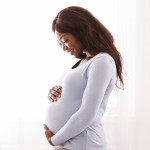Screening for fetal abnormalities is accurate for pregnant women living with HIV and should be offered, similar to recommendations for HIV-negative women, according to the authors of a Swiss study reported in the October 1 issue of AIDS.
Screening for Down syndrome—a disorder caused by the presence of an extra chromosome leading to mild-to-moderate mental retardation—is a part of routine prenatal care frequently performed during the first three months, or first trimester, of pregnancy by first measuring various protein levels in the blood. During the second trimester, pregnant women are tested for a high level of a protein that may indicate birth defects of the brain and spinal cord, such as spina bifida and anencephaly.
Some studies, however, suggest that HIV infection and antiretroviral (ARV) treatment can modify levels of blood proteins used to screen for fetal abnormalities; this could lead to overestimating the risk for Down syndrome and underestimating the risk for birth defects of the brain and spinal cord. And because amniocentesis—the insertion of a needle into the womb to collect amniotic fluid needed to confirm the possibility of a birth defect—is associated with an increased risk of HIV transmission to the fetus, obstetricians require accurate blood test results to avoid potentially risky invasive procedures.
The latest studies, authored by researchers associated with the Swiss HIV Cohort Study and the Swiss HIV Mother and Child Cohort Study, indicate that while there are some minute differences in specific blood levels between HIV-positive and HIV-negative women, the risk assessment for birth defects was similar in both groups. The study involved 214 HIV-positive pregnant women and 856 HIV-negative women undergoing first-trimester Down syndrome screening and 209 HIV-positive and 836 HIV-negative women undergoing second-trimester testing for brain and spinal cord birth defects.
While some studies found higher levels of two proteins in blood suggestive of Down syndrome—β-hCG and PAPP-A, leading to an overestimation of a birth defect risk—the Swiss researchers found slightly lower levels among the HIV-positive women. While the differences were statistically significant, meaning that they weren’t due to chance, they remained modest and ultimately had no impact on Down syndrome risk calculations. Additionally, differences in these blood levels were no more or less likely to occur among women receiving ARV therapy at the time of testing.
No significant differences in the levels of alfa-fetoprotein in blood samples, used to flag possible brain and spinal deformities, were reported.
“We have shown that first-trimester screening for Down syndrome and second-trimester screening for [brain and spinal birth defects] are reliable in HIV-positive pregnant women,” the authors conclude. “The minor differences found in some markers do not have any clinical impact, and concern over an overestimation of risks is no longer justified. In conclusion, we consider that HIV-positive pregnant women should be offered the same screening tests for fetal anomalies as those who are HIV negative.”






Comments
Comments